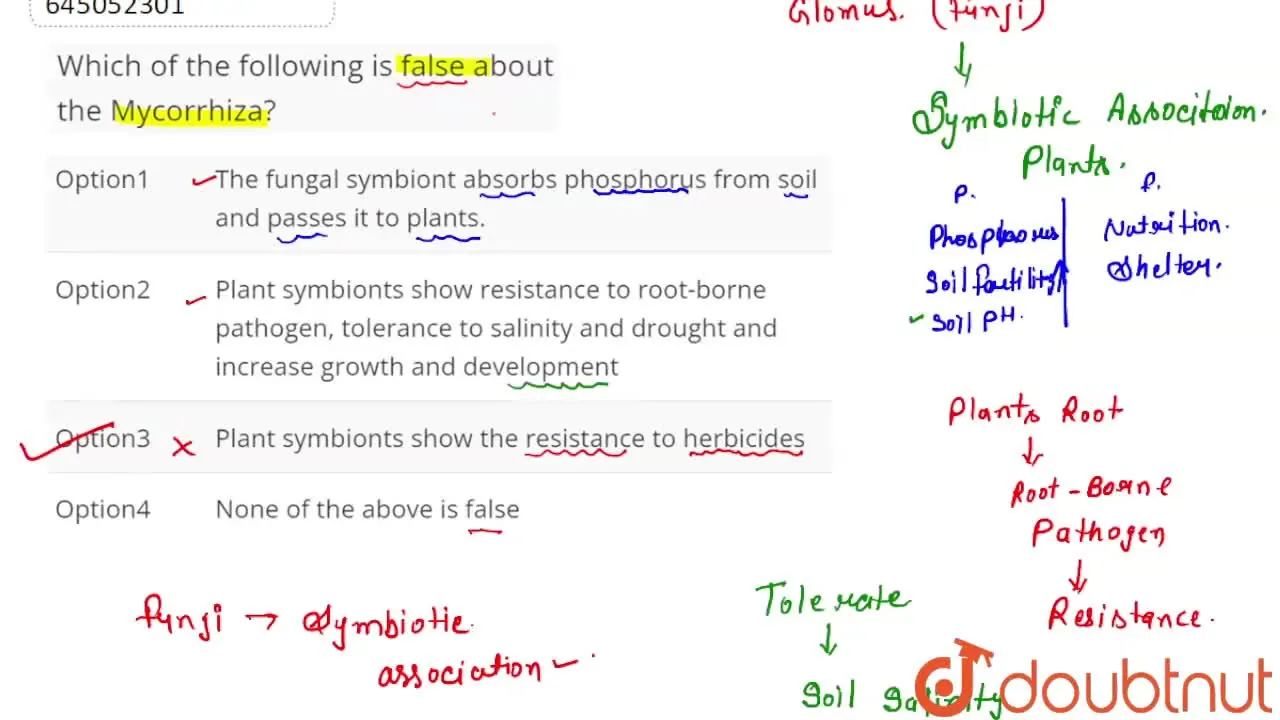Which of the following is false about the Mycorrhiza?
The fungal symbiont absorbs phosphorus from soil and passes it to plants.
Plant symbionts show resistance to root-borne pathogen, tolerance to salinity and drought and increase growth and development
Plant symbionts show the resistance to herbicides
None of the above is false
The correct Answer is:C
Step by step video, text & image solution for Which of the following is false about the Mycorrhiza? by Biology experts to help you in doubts & scoring excellent marks in Class 12 exams.
Similar Questions
Which of the following is false about ECG
View SolutionWhich of the following is false about amides?
View SolutionWhich of the following is false about villi?
View SolutionWhich of the following is false about xenogamy?
View SolutionWhich of the following is false about the respiration of frog?
View SolutionWhich of the following statements is incorrect about the heart of cockroach ?
View SolutionWhich of the following is false about ascomycetes
View SolutionWhich of the following is false about glial celis?
View SolutionWhich of the following is false about deuteromycetes?
View SolutionWhich of the following is false about hydrophilic sols
View Solution


